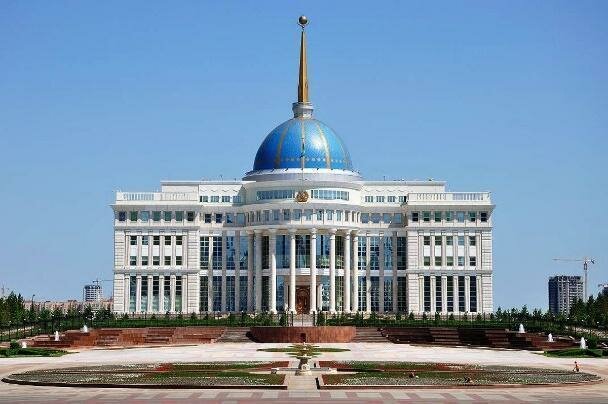How to win government contracts and tenders in Kazakhstan

Strategies for Securing Government Contracts in Kazakhstan: A Comprehensive Guide
Kazakhstan’s public procurement landscape has evolved significantly in recent years, integrating digital platforms and aligning national priorities with international standards. For companies—particularly those based outside Kazakhstan—navigating these rules requires a clear understanding of registration procedures, compliance obligations, and government policies. Drawing information exclusively from official government and intergovernmental sources, this guide provides essential insights for securing state contracts effectively.
Legal Framework for Public Procurement in Kazakhstan
Domestic Procurement Legislation
The core legal framework governing procurement includes the Public Procurement Law, enforcing transparency standards primarily through the official e-procurement portal goszakup.gov.kz. This platform centralizes 99% of state procurement activities, emphasizing competitive bidding, transparent selection processes, and anti-corruption compliance. Recent amendments notably favor domestic manufacturers, expanding the list of goods and services reserved exclusively for local suppliers. According to Prime Minister’s Office statements, preferential state-backed “offtake contracts” ensure stable demand for domestically-produced goods.
International Standards Alignment
Although not yet a member of the WTO’s Government Procurement Agreement (GPA), Kazakhstan participates actively with international organizations such as the Central Asia Regional Economic Cooperation (CAREC), facilitated by the Asian Development Bank, as well as workshops co-organized internationally with WTO representatives. These initiatives aim to align Kazakhstan’s procurement regulations with OECD guidelines, signaling a strategic intention toward international standards compliance. Companies should stay abreast of these developments, which could impact future procurement access.
Registration and Documentation Requirements
Mandatory Supplier Registration
Companies wishing to bid for contracts must fulfill several obligatory registration requirements:
- Registration on goszakup.gov.kz: Businesses must create verified accounts on Kazakhstan’s official procurement portal by submitting corporate documentation such as incorporation certificates and tax clearance confirmations.
- Sector-specific Licenses: Depending on the business segment, vendors must obtain appropriate licenses from governmental authorities—for instance, construction companies require permits from urban planning committees, while health-related businesses must obtain certifications approved by Kazakhstan’s Ministry of Health.
Key Bidding Documentation
Tender submissions generally demand detailed documentation, including:
- Technical Proposals: Outlining methodologies for meeting project specifications, including CVs and credentials of key personnel and proof of necessary equipment.
- Financial Offers: Clear cost breakdowns, usually presented exclusive of VAT unless explicitly required otherwise.
- Bid Security: Typically a bank guarantee, commonly amounting to at least 2% of a project’s estimated total value.
Failure to adhere strictly to these guidelines can cause immediate bid disqualification, particularly regarding deadlines and authenticated documents.
Kazakhstan’s Trade Policies Affecting Procurement
Domestic Procurement Preferences
Kazakhstan has implemented significant measures to prioritize domestically-produced goods. Legal revisions enforce a price margin advantage (up to 25%) for locally-manufactured products, particularly impacting pharmaceuticals, agricultural equipment, and renewable energy components. Foreign enterprises participating in local joint ventures (with production predominantly inside Kazakhstan) equally benefit from such advantages.
A notable example involved regional hydropower project tenders, partly funded by international lenders such as the Asian Development Bank (ADB), where Kazakhstan’s government banks insisted successful bidders partner local producers, despite cheaper foreign alternatives—affirming the strict enforcement of domestic supplier preference.
Export Controls and Sanctions Compliance
Due to geopolitical dynamics—such as sanctions linked to Russia’s actions in Ukraine—Kazakhstan has tightened controls on dual-use technology exports, specifically drone components and microelectronics. Firms must ensure robust supply-chain assessments to prevent the accidental inclusion of sanctioned entities, emphasizing rigorous due diligence to avoid potential blacklisting or criminal prosecution.
Practical Strategies for Successful Contract Acquisition
- Establishing Local Partnerships: Foreign companies can significantly increase their chances of winning bids by forming joint ventures in Special Economic Zones, benefiting from favorable tax terms and achieving local-content compliance.
- Actively Participating in Pre-Bid Consultations: Attendance at mandatory meetings hosted by procurement officials allows suppliers to clarify requirements and position themselves favorably.
- Using Digital Tools: Companies should utilize analytics dashboards provided on the procurement portal to monitor competitive trends and historical patterns.
- Engaging State-backed Financial Institutions: Development Bank of Kazakhstan (DBK) and Kazakhstan Development Bank (KDB) offer concessional financing for large-scale infrastructure projects, often linked to partial revenue-sharing terms.
Conclusion and Future Outlook
Kazakhstan’s procurement model combines protectionist stance favoring local industries with measured openness to global procurement practices. Upcoming regulatory adjustments—including amendments to the Tax Code aimed at incentivizing high-value manufacturing—will further shape procurement opportunities. Companies proactively adapting to these national policy frameworks stand best positioned to succeed in Kazakhstan’s increasingly competitive public procurement market.
[1] https://www.biddetail.com/kazakhstan-tenders
[2] https://astanatimes.com/2025/03/kazakhstans-trade-and-foreign-balance-grow-in-2024-minister-reports/
[3] https://openknowledge.worldbank.org/entities/publication/ae7d237e-3395-53d3-a376-5bfd6d2ba0b0
[4] https://corporate.ethiopianairlines.com/media/Tender-Documents
[5] https://www.rferl.org/a/astana-nuclear-kazakh/33148851.html
[6] https://www.adb.org/news/adb-kazakhstan-sign-transaction-advisory-agreement-hydropower-development-program
[7] https://www.rferl.org/a/kazakhstan-restricts-experts-russia-war-mlitary-technology-ukraine/32645515.html
[8] https://astanatimes.com/2025/02/kazakhstan-reviews-proposals-from-global-reactor-suppliers-for-first-nuclear-plant/
[9] https://egov.kz/cms/en/services/pharmaceutics/pass601013_mz
[10] https://regfollower.com/kazakhstan-new-guidelines-of-tp-documentation-and-apa/
[11] https://www.rferl.org/a/kazakhstan-exports-sanctioned-dual-use-technology-russia/32480442.html
[12] https://www.achilles.com/industry-insights/procurement-act-23-faqs/
[13] https://www.rferl.org/a/kaspi-bank-kazakhstan-toqaev-lomtadze-kim-nasdaq-culper/33131206.html
[14] https://assets.publishing.service.gov.uk/media/67b70e7a0495029f3e1c6a66/kazakhstan-trade-and-investment-factsheet-2025-02-21.pdf
[15] https://ahrefs.com/websites/goszakup.gov.kz
[16] https://primeminister.kz/en/news/olzhas-bektenov-discusses-tax-reform-and-answers-topical-questions-with-entrepreneurs-of-north-kazakhstan-region-29683
[17] https://www.gov.kz/memleket/entities/kostanai-kalasy-akimat?lang=en
[18] https://www.kdb.kz/en/pc/news/press-releases/14636/
[19] https://tams.wto.org/node/10466
